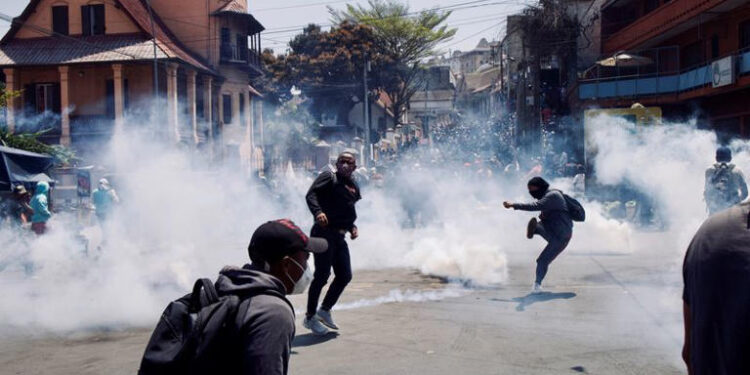Authorities in Madagascar have declared a curfew in the capital Antananarivo after violent protests over prolonged water and electricity shortages left at least five people dead. The unrest highlights growing public frustration with failing infrastructure and deepening social tensions in the island nation.
Protests turn violent
The demonstrations erupted after residents, angered by repeated outages lasting more than 12 hours a day, took to the streets demanding urgent action. Protesters set fires to buildings, looted shops, and clashed with security forces. Offices of the national utility Jirama, widely blamed for the outages, were among the main targets. Homes of politicians were also attacked during the violence.
Security response
Police deployed heavily across Antananarivo, firing tear gas and rubber bullets to disperse crowds. The government announced a dusk-to-dawn curfew from 7 pm to 5 am, with officials warning it could be extended if unrest continues. Authorities said the measure was necessary to restore order, though human rights groups expressed concern about the heavy-handed response.
Chronic infrastructure failures
Water and power shortages have long plagued Madagascar, one of Africa’s poorest countries. Jirama, the state utility, has faced years of financial and operational difficulties, leading to widespread service failures. Many residents say conditions have worsened in recent months, sparking anger that boiled over into open confrontation.
Political implications
The protests underline a broader discontent with governance and inequality. Analysts warn that unless the government addresses the structural problems behind failing services, the crisis risks destabilising Madagascar’s fragile political landscape. With international attention now turning to the unrest, pressure is mounting on leaders to deliver lasting solutions.
Newshub Editorial in Africa – 26 September 2025




Recent Comments